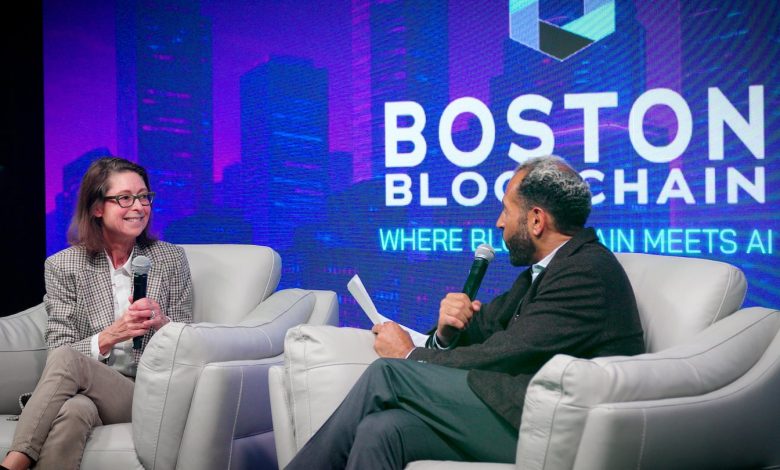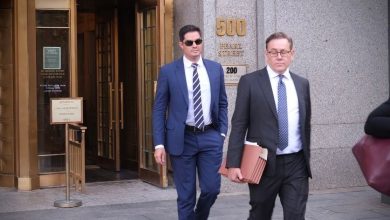Fidelity’s Abby Johnson headlines crypto conference in Quincy

Can Greater Boston become a hub for blockchain and crypto businesses?
Fidelity investments chief executive Abby Johnson sure hopes so. That’s how she responded when asked this question by Qubic Labs cofounder Ian Cain during the Boston Blockchain Week conference, held in Quincy Center.
For many big financial players in Boston such as Fidelity and State Street, so-called “digital assets” are becoming an increasing part of doing business. (Fidelity, in particular, was an early mover in crypto.) But the city lacks a globally known pure-play crypto or blockchain business after Circle, which distributes its own digital currency, decamped to New York.
Still, organizations like Qubic Labs see the potential for growth, in part because of the city’s tech and financial talent and its concentration of universities. Cain and others started the nonprofit incubator a few years ago during the COVID-19 pandemic, with a stated goal of positioning “Quincy and the region as a leader in the global blockchain ecosystem.”
It felt like they had succeeded last week, with around 500 people attending the multi-day blockchain conference. Mayor Tom Koch stopped by, mentioning the time Quincy was the first seller of a municipal bond on blockchain in 2024, a $10 million issuance by investment bank JPMorgan Chase. (Blockchains are distributed databases or ledgers shared across computers, used for exchanging cryptocurrency but also for more conventional transactions.)
As head of one of the biggest financial companies in the world, Johnson brought some star power to the proceedings. During her presentation, Johnson talked about how Fidelity first experimented with digital assets about 12 years ago, later embraced them, and is now actively lobbying members of Congress for policies that encourage their growth. This year, Fidelity launched a product that allows investors to trade and hold cryptocurrency assets in a tax-advantaged IRA, and rolled out a tokenized money market fund on the Ethereum blockchain.
“I would love to see Boston as a hub for all this activity,” Johnson said. “I think that one of the things that really helped us thrive in our core business [of mutual funds] was that we were here in Boston and there were lots of other companies similar to ours.”
She added: “Sometimes people say, ‘Well, someone can quit and walk down the street and get the same job [with a competitor]. That’s true and that is a negative or a risk. But the positive of being a talent destination for an area that is exciting and growing makes it all worth it.”
This is an installment of our weekly Bold Types column about the movers and shakers on Boston’s business scene.
Jon Chesto can be reached at jon.chesto@globe.com. Follow him @jonchesto.




